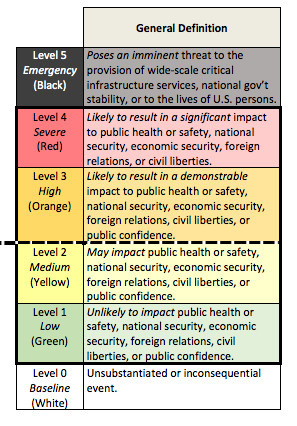Revolving Door Sends Millions to Refugee Resettlement Agency Run by Former Clinton and Obama Appointees

A revolving door in the Democratic administrations of Bill Clinton and Barack Obama has sent millions of dollars in federal funding to the U.S. Committee for Refugees and Immigrants [USCRI], which is led by two former directors of the Office of Refugee Resettlement [ORR], the federal office that selects the voluntary agencies [VOLAGs] who get lucrative federal contracts to resettle refugees.
Breitbart: President Bill Clinton appointed Lavinia Limon as director of ORR in 1993, a position she held until the end of his administration. After a brief interlude at the Center for New American Communities, a project of the left-leaning National Immigration Forum, Limon was named executive director of USCRI in August 2001, a position she still holds.
Revenues at USCRI, his once and future employer, increased significantly while Negash served as director of the ORR. In FY 2006, USCRI revenues were $19 million. By 2015, they had grown to $50 million, more than 90 percent of which came from “government grants.”
ORR’s budget grew from $492 million in FY 2006 to $1.5 billion in 2014.
During his tenure at ORR, Negash’s performance was spotty at best, particularly with regards to his failure to provide Congress with the statutorily required annual reports in a timely manner. As Ann Corcoran wrote at Refugee Resettlement Watch back in 2012, three years after Negash’s arrival:
The Office of Refugee Resettlement (ORR), is in complete disarray as regards its legally mandated requirement to report to Congress every year on how refugees are doing and where the millions of tax dollars are going that run the program. The last (and most recent) annual report to be sent to Congress is the 2008 report—so they are out of compliance for fiscal years 2009, 2010 and 2011. . . (The lack of reports for recent years signals either bureaucratic incompetence and disregard for the law, or, causes one to wonder if there is something ORR is hiding.)
To replace Negash as director of ORR, Obama selected another VOLAG executive, Bob Carey, Vice President of Resettlement and Migration Policy at the International Rescue Committee and “chair of Refugee Council USA, a coalition of NGOs working on issues affecting refugees, asylum seekers, displaced persons, victims of trafficking and victims of torture,” the Resettlement Industry’s Lobbying Group.
The twenty members of Refugee Council USA include all of the top VOLAGs whose main source of revenue comes from ORR grants, including Church World Service/Immigration and Refugee Program, Episcopal Migration Ministries, Ethiopian Community Development Council, HIAS, International Catholic Migration Commission, International Rescue Committee, Lutheran Immigration and Refugee Service, U.S. Conference of Catholic Bishops/Migration & Refugee Services, U.S. Committee for Refugees and Immigrants, and World Relief.
Now the same lobbying group that Carey once chaired, Refugees Council USA, recently announced it wants to more than double the number of refugees allowed in to the United States in 2017—to 200,000, from approximately 70,000 in FY 2015 and an Obama administration “targeted level” of 85,000 in FY 2016, with much of the increase driven by the hasty push to admit 10,000 Syrian refugees this year.
The budget impact of such an increase would be enormous, possibly doubling ORR expenditures from $1.5 billion in FY 2014 to $3 billion or more in FY 2017.
The International Rescue Committee, whose CEO is the former United Kingdom Foreign Secretary David Miliband, had worldwide revenues in 2015 of $691 million, a $138 million increase from its $563 million revenues in 2014.
Most of that revenue (82 percent in 2015—or $572 million) came from “grants and contracts,” most from governments and related agencies around the world, including the federal government of the United States.
Related reading: Kerry: US to accept 85,000 refugees in 2016, 100,000 in 2017
In contrast to the Bill Clinton and Barack Obama administrations, George W. Bush’s two appointed directors of ORR, Nguyen Van Nah and Martha E. Newton, did not participate in the revolving door back to lucrative employment at the VOLAGs they oversaw after they left ORR.
Van Nah, director from 2001 to 2006, became a professor of economics at Sacramento State University in California when he left ORR.
Newton, who succeeded Van Nah, went from ORR to become a consultant at her own firm, Health Strategies LLC.
Democratic appointees Limon, Negash, and Carey have worked tirelessly to expand both the budget of ORR and the party’s far-left, pro-refugee agenda.
It was during Limon’s tenure that the “Wilson Fish alternative program”was used as justification, without the corresponding statutory authority, to hire VOLAGS to operate resettlement programs in states that withdrew from the federal program. The enabling legislation made no mention of such a provision, but Limon and her colleagues pushed it through the HHS regulatory process without much public fanfare.
Related reading: Clinton Says Taking in Refugees Is ‘Who We Are as Americans’
Currently, several USCRI operations–in Twin Falls, Idaho and Lowell, Massachusetts, for instance–are funded by ORR through this statutorily questionable Wilson Fish alternative program mechanism.
It was also during Limon’s tenure at ORR that the mix of nations of origin for refugees shifted dramatically.
In 1992, the year before Limon was named ORR director, the Near East Asia countries of Afghanistan, Iraq, and Iran, and the African countries of Angola, Burundi, Congo, Ethiopia,Liberia, Libya, Nigeria, Rwanda, Sierra Leone, Somalia, Sudan, and Uganda —many of them majority Muslim—accounted for only nine percent of all resettled refugees.
But by 2001, Limon’s last year at the helm of ORR, these African and and Near East Asia countries accounted for 46 percent of all resettled refugees.
Operationally, USCRI has had its share of problems under Limon’s leadership.
In 2008, before Negash was named ORR director, USCRI’s Waterbury, Connecticut field office had its resettlement contract there canceled:
The State Department has canceled its contract with the agency responsible for resettling 64 Burmese refugees to Waterbury. In response, Connecticut’s congressional delegation has sent a letter of protest to the state department, asking it to give the International Institute of Connecticut more time to settle its problems.
This follows months of reports of poor housing, fractious relationships with volunteers, missed immunizations for students and insufficient assistance with daily tasks. The State Department brought the refugees here to escape the tyranny in their native Myanmar.
“I’ve heard of agencies being under investigation and there being a threat of canceling a contract, but this is the first time I’ve known about a particular case being canceled,” said Stephanie J. Nawyn, a sociologist at Michigan State University who studies resettlement. “I do think this is unusual.”
In Lowell, Massachusetts last month, a 13-year-old girl was allegedly sexually harassed by a recently arrived Syrian refugee:
A 22-year-old Syrian refugee is behind bars after only two months in the United States after he was accused Thursday night of inappropriately touching a 13-year-old girl at a state-run swimming pool in Lowell.
In Twin Falls, Idaho, USCRI’s local subcontractor, the College of Southern Idaho, is dealing with a national controversy involving three refugees and the sexual assault of a five-year-old girl.
Chobani Yogurt, the company that owns and operates the largest yogurt manufacturing facility in the world in Twin Falls, thanks in part to $54 million in federal and state grants, relies heavily on refugees brought in by USCRI and the College of Southern Idaho as employees. In 2015, CNN reported that 600 of the company’s 2,000 employees are refugees.
Even the far-left Michelle Goldberg, reporting at Slate, concedes, “There had been an incident involving three boys, ages 7, 10, and 14, and a mentally disabled 5-year-old girl [in Twin Falls].”
[Twin Falls county prosecutor Grant] Loebs described it to me as a “very serious felony.” On June 2, an 89-year-old neighbor discovered the children in the laundry room at the Fawnbrook Apartments, a low-income housing complex. The youngest boy is from Iraq while the older ones, brothers, are from an Eritrean family that passed through Sudanese refugee camps. (Most news reports have identified the older boys as Sudanese.) Only the youngest boy, Loebs said, is alleged to have touched the girl, though investigators suspect the 10-year-old might have as well; the elder boys reportedly made a video.
Because everyone involved in the case is a minor, the records were sealed. Nevertheless, on the evening of June 20, Twin Falls Police Chief Craig Kingsbury appeared at the weekly City Council meeting to update the anxious public as best he could. He announced that police had arrested the two older boys the previous Friday and that they were being held in juvenile detention. (Loebs later told me that the 7-year-old was also charged with a felony but wasn’t taken into custody because of his age.)
Despite these operational problems, Limon’s hold on the reins of USCRI appears to be secure.
Her job security, as well as her status within the politically powerful refugee resettlement industry, is undoubtedly enhanced by her ties with the Clinton and Obama administrations, which run long and deep.
In 2015, Limon attended an event sponsored by the Clinton Global Initiative, where she served on the same panel as Hamdi Ulukaya, the founder and CEO of Chobani Yogurt.
Limon appears to have done well from her life time career advancing refugee rights.
A 1972 graduate of the University of California at Berkeley, with a degree in sociology, Limon served as director of the International Institute of Los Angeles prior to being picked by Bill Clinton to head up the ORR in 1993.
In 2012, the last year for which such data is readily available, Limon received over $289,000 in compensation for her job as executive director of USCRI.
Peter Limon, who appears to be Limon’s brother, is also employed by USCRI as director of Business Development.





